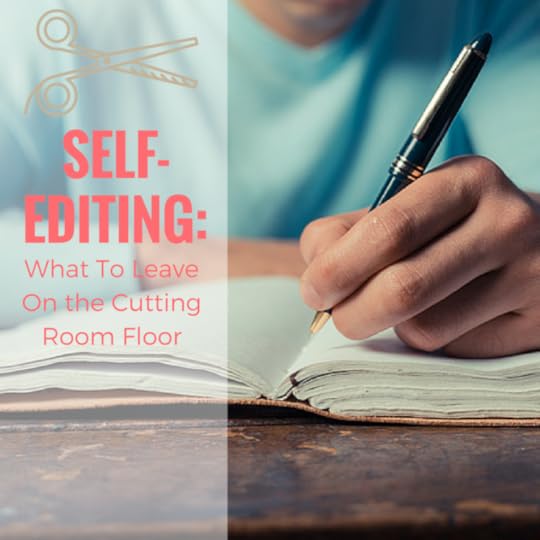Self-Editing: What To Leave On the Cutting Room Floor

Often when I am thumbing through submissions at Xulon, reading a manuscript for our critique service, or simply editing a whole manuscript, I quickly pick up on a lot of material that is—in a word—unnecessary. If you’ve ever gotten our Editorial Critique, Manuscript Review, or had your book edited by me, you’ve more than likely received a comment or two instructing you what to leave on the “cutting room floor.”
Think of your book as a movie on a reel. From the title page to the index, from the climax to the back cover, each part of your book is in a filmstrip. When attached together, it creates the whole book.
A movie is edited before the final product is released into theaters. There are parts cut out, whether it’s a deleted scene, a “blooper”, or a scene an editor deems unfit for the final product. In the end, after editing, there are filmstrips left on the cutting room floor—and the final product is clean and concise. Make sense?
When self-editing, imagine your book is on a film reel and that you need to chop a few strips from the reel. What do you cut out? What is considered “unnecessary?” What doesn’t contribute to the overall value and point of your story? (This applies to fiction and nonfiction alike.)
In my cutting room, personally, there are three things I find myself chopping from nearly every manuscript:
Unnecessary words. The most superfluous and often-used words are: really, very, just, and seem. These words add no additional meaning or emphasis to your overall sentence, and therefore can be removed. Readers will still get what you’re trying to say. Example: “I just really love chocolate” can easily say, “I love chocolate.” The words “just” and “really” add nothing pertinent to the overall message, contribute to a high word count and disturb the flow of reading.
Defining words readers already know. This has become a trend in many nonfiction books lately. I recently edited a book where the author included the Webster dictionary definition to the words: “prayer”, “nothing”, and “private.” If someone is reading your book, they’re literate. Defining words that they already know the definition to is not only unnecessary, but also may frustrate the reader and make them feel belittled.
Scenes that don’t add to the overall story. When thinking of your book as the movie reel, remember that not everything will contribute to the overall message of your story. Each scene and each detail you show should be relevant to the story and should contribute something to your message.
During our author coaching sessions, I always tell authors that “less is more” when it comes to a book’s overall word count. Just because a book has a high word count doesn’t mean it’s good; it may mean there’s a lot of unnecessary words, and that some self-editing is in order.
Leave those words, definitions, and scenes on the cutting room floor and your book will be more clear, concise, and to the point!
The post Self-Editing: What To Leave On the Cutting Room Floor appeared first on Xulon Press, Christian Self Publishing.
Xulon Press Blog
- Peter Lopez Jr.'s profile
- 8 followers



